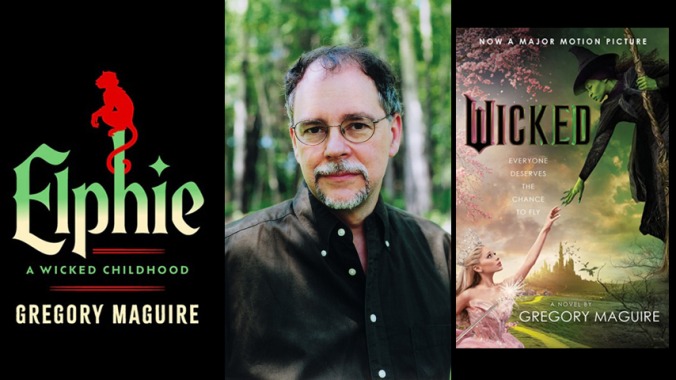Gregory Maguire on Thirty Years of Wicked and Returning to the World of Oz
Photo: Andy Newman
Without author Gregory Maguire there would be no Wicked—no hit Broadway musical or big-budget film adaptation. There might not even be Maleficent or any of the other retellings of fairy tales from alternate points of view we’ve gotten in recent years. Maguire wasn’t the first writer to attempt to rehabilitate a classic antagonist but since the release of his book Wicked: The Life and Times of the Wicked Witch of the West in 1995, the villain origin story has become a trend that’s never really gone out of style.
Maguire has written many books for adults inspired by classic children’s stories, including Confessions of an Ugly Stepsister (based on Cinderella), Mirror, Mirror (based on Snow White), and After Alice (based on Alice in Wonderland), but he keeps coming back to Oz and the one that started it all. After Wicked came out he went on to write three more sequel books in the series now known as The Wicked Years. Then, about 10 years after the final book in that series—Out of Oz—was published, he returned to continue the story of Elphaba’s granddaughter in the Another Day trilogy, beginning with The Brides of Maracoor in 2021. And now there’s one more on the way. Maguire’s next book Elphie is a prequel to Wicked and fills in the gaps of Elphaba’s life story prior to her arrival at Shiz University.
We got the chance to speak with Maguire about his new book, the stage adaptation of Wicked, and the highly anticipated film version. Although they depart significantly from the source material, he talked about his admiration for composer Stephen Schwartz and writer Winnie Holzman (who is also credited as a screenwriter on the film) and the ways their work has inspired him in turn.
-

-

-

-

-

-

-

-

-

-

-

-

-

-

-

-

-

-

-

-

-

-

-

-

-

-

-

-

-

-

-

-

-

-

-

-

-

-

-

-









































